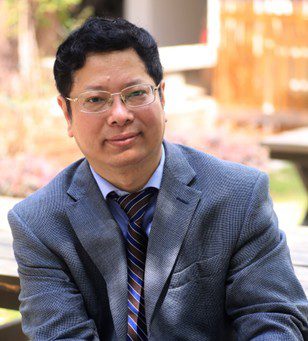Yongmiao Hong is currently a Kwan Chao-Chih Chief Research Fellow at Academy of Mathematics and Systems Science, Chinese Academy of Sciences, and the Dean of School of Economics and Management, University of Chinese Academy of Sciences. He is a Fellow of the World Academy of Sciences for advance of sciences in developing countries, a Fellow of the Econometric Society, a Fellow of International Association of Applied Econometrics, a Fellow of the Asia-Pacific Artificial Intelligence Association. Previously, Professor Hong was the Ernest S. Liu Professor of Economics and International Studies, a Professor of Statistics at Cornell University, and the President of Chinese Economists Society in North America from 2009 to 2010.
Professor Hong’s research interests include econometric theory, time series econometrics, financial econometrics, and statistics. He has published referred papers in mainstream economic, financial and statistical journals such as Annals of Statistics, Biometrika, Econometric Theory, Econometrica, International Economic Review, Journal of American Statistical Association, Journal of Business and Economic Statistics, Journal of Econometrics, Journal of Political Economy, Journal of Royal Statistical Society (Series B), Quarterly Journal of Economics, Management Science, Review of Economic Studies, Review of Economics and Statistics, and Review of Financial Studies. His most recent English book is Foundations of Modern Econometrics: A Unified Approach. He has been listed among Most Cited Chinese Researchers in Economics/Statistics by Elsevier for 11 consecutive years from 2014 to 2024, and was awarded the first prize in the 2022 National Teaching Award for Higher Education (Undergraduate).
How did you become a forecaster?
My background in econometric theory and time series econometrics naturally led me to forecasting, as I’ve always been interested in developing methods to understand and predict complex economic and financial dynamics.
What areas of forecasting interest you?
I’ve been interested in theory and methods for time series forecasting, particularly density forecast evaluation, model averaging, time-varying forecasting under smooth structural changes, with their applications to economics and finance.
How has the International Journal of Forecasting influenced you?
IJF has been an important platform for advancing forecasting methods and sharing rigorous research, significantly influencing both my theoretical work and practical applications in forecasting.
What do you do in your free time?
I enjoy reading, reflecting on interdisciplinary topics, and mentoring young researchers whenever I have time outside of my academic and administrative responsibilities.


